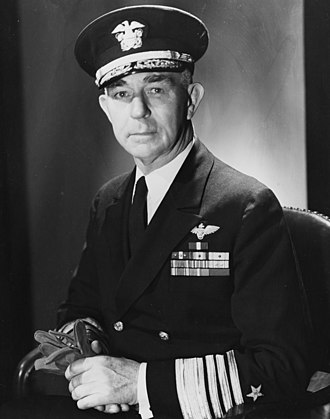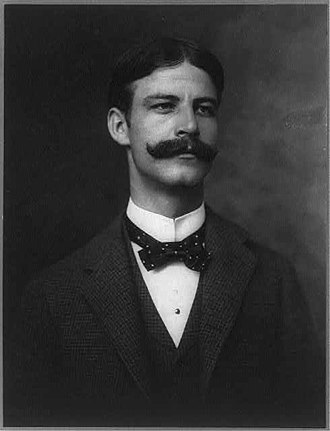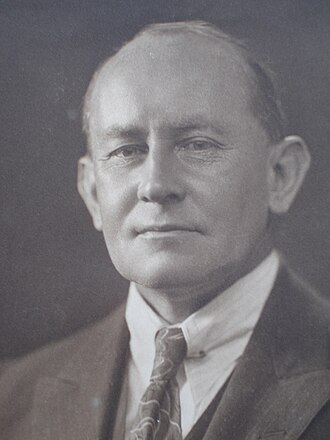Discover Your Roots
SIGN UPDiscover Your Roots
SIGN UPRichmond is a male name of English origin, meaning "The Protector King." It is derived from the Old English words "ric" (meaning ruler or king) and "mund" (meaning protector). The name Richmond is often associated with strength, leadership, and protection. It is a popular name in English-speaking countries and has been used by notable individuals throughout history. Additionally, Richmond is also the name of various locations and landmarks around the world, including suburbs, cities, and electoral districts in Australia, Canada, the United Kingdom, and the United States. The name's historical and geographical significance adds to its rich and enduring appeal. Whether as a first name or a place name, Richmond holds a strong and regal connotation.

Admiral Richmond Kelly Turner, known as Kelly Turner, was a prominent figure in the United States Navy during World War II, where he commanded the Amphibious Force in the Pacific theater. He was also credited with establishing the Underwater Demolition Teams (UDT) in 1942, a precursor to the Navy SEALs.Born in Portland, Oregon, on May 27, 1885, Turner's early life revolved around Stockton, California, where he graduated from Stockton High School in 1904. He then went on to attend the Naval Academy, graduating in 1908.Turner's naval career saw him serving on various ships and holding important positions, including commanding the destroyer USS Stewart and serving as a naval aviator. He attended the Naval War College and held the position of Director of War Plans in Washington, D.C., in 1940–41.Turner's role as Director of War Plans brought him into the sphere of Pearl Harbor, where he became involved in crucial decision-making processes. His actions and decisions in relation to the events leading up to the Pearl Harbor attack have been the subject of historical scrutiny and debate.Admiral Richmond Kelly Turner's contributions and involvement in pivotal moments of naval history have left a lasting impact on the United States Navy and the course of World War II.

Richmond Jewel Webb, born on January 11, 1967, is a former American professional football player known for his outstanding career as an offensive tackle in the National Football League (NFL). Webb's football journey began at Texas A&M Aggies, where he showcased his exceptional talent, leading to his selection as the ninth overall pick by the Miami Dolphins in the 1990 NFL draft.During his 11-year tenure with the Dolphins, Webb achieved remarkable milestones, including setting team records for 118 consecutive starts and earning seven consecutive Pro Bowl appearances. Following his tenure with the Dolphins, he went on to play two seasons for the Cincinnati Bengals. Unfortunately, his career faced setbacks due to injuries, ultimately leading to his retirement in the fall of 2004. Webb's contribution to the sport was duly recognized when he signed a one-day contract to retire as a member of the Dolphins in 2005 and was later inducted into the Dolphins Honor Roll in 2006.Webb's football journey began at Dallas Independent School District's Roosevelt High School, where he honed his skills alongside future NFL players Aaron Wallace and Kevin Williams. His legacy continues to inspire football enthusiasts and aspiring athletes, leaving an indelible mark on the sport.

Richmond Harold Shreve (June 25, 1877 – September 11, 1946) was a prominent Canadian-American architect known for his influential contributions to iconic structures. Born in Cornwallis, Nova Scotia, to Richmond Shreve and Mary Catherine Parker Hocken, he pursued his education at Cornell University and later became a distinguished figure at the institution, ultimately serving as president of the American Institute of Architects from 1941 to 1943. Shreve's architectural prowess is exemplified by his company, Shreve, Lamb and Harmon, which spearheaded the construction of the renowned Empire State Building, etching his name in architectural history. In addition to this monumental achievement, he also played a pivotal role in designing several notable buildings at Cornell University and led the development of significant housing projects in Brooklyn and the Bronx. Richmond H. Shreve's legacy lives on through his architectural masterpieces and his inclusion in the book The 100 Most Notable Cornellians, solidifying his enduring impact on the architectural landscape.

Richmond Pearson Hobson (1870–1937) was a distinguished United States Navy rear admiral and U.S. Representative from Alabama. Graduating from the United States Naval Academy in 1889, he earned the Medal of Honor for his valor in the Spanish–American War. Hobson's remarkable act of bravery involved attempting to sink the collier Merrimac as an obstruction in the channel leading to Santiago Harbor, Cuba, under heavy Spanish fire. He became a celebrated hero and a symbol of bravery, with his portrait appearing in numerous newspapers. Following the war, he continued his service in the Navy, ultimately retiring and pursuing a political career as a Democratic U.S. Representative from Alabama. Hobson was an advocate of naval expansion and a supporter of the cause of banning drugs and alcohol, earning him the nickname "The Father of American Prohibition." He passed away in 1937 and was interred in Arlington National Cemetery. His legacy lives on as a prominent figure in American military and political history.

Sir Herbert Richmond Palmer (20 April 1877 – 22 May 1958) was an English barrister who played a significant role as a colonial supervisor for Britain during the inter-World War period. Born in Lancaster to Robert Palmer, a clergyman, and Mary Chippendall, Palmer received his education at Oundle School and Trinity Hall, Cambridge. He excelled academically and in sports, playing club rugby for Cambridge University and earning a Blue in the rugby Varsity match against Oxford in 1899. Palmer's colonial service was primarily in Nigeria, where he worked towards the abolition of slavery and played a pivotal role in the reorganization and administration of the Northern Provinces. He was a staunch advocate of the principles of Indirect Rule, which enhanced the influence of traditional Muslim emirs and contributed to the rapid spread of Islam during the colonial era. His expertise in African culture, languages, and literature made him an outstanding Hausa and Arabic scholar.In addition to his service in Nigeria, Palmer held positions as lieutenant governor in Nigeria, governor and Commander-in-Chief of The Gambia, and governor and Commander-in-Chief of Cyprus. His dedication and contributions have left a lasting impact on the history of British colonial administration.
All images displayed on this page are sourced from Wikipedia or Wikimedia Commons.We use these images under their respective Creative Commons or public domain licenses. Wherever applicable, author attributions and license information are provided. If you believe an image is used incorrectly or outside its license terms, please contact us so that we can review and correct the issue.